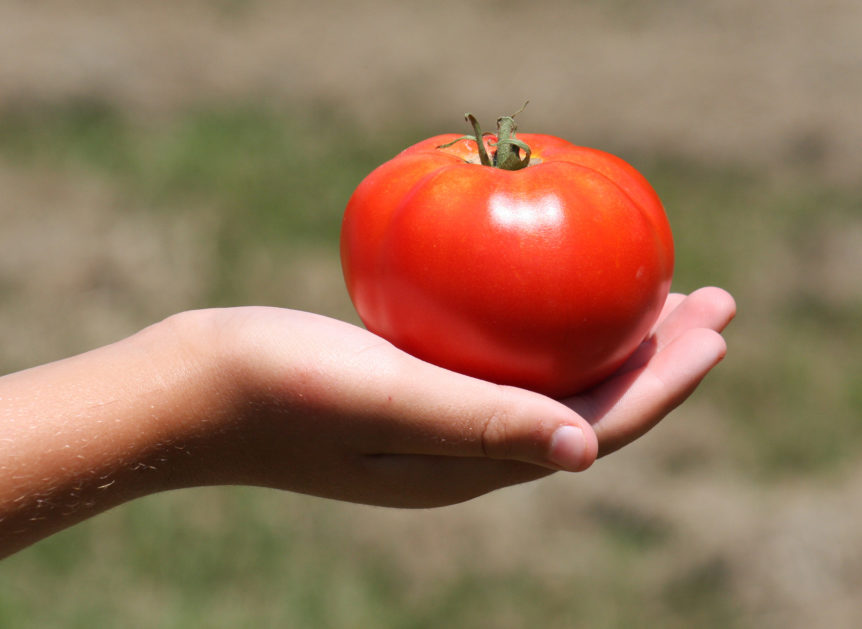
People with a green thumb for growing tomatoes are giving University of Florida Institute of Food and Agricultural Sciences (UF/IFAS) researchers data to help them find tastier tomatoes.
Through a citizen science program, Denise Tieman, a UF/IFAS research associate professor of horticultural sciences, and her lab are retrieving viable data from residential gardeners about which tomato varieties grow and taste best.
Tieman and Jessica Chitwood-Brown, an assistant professor of horticultural sciences, spoke at the Florida Tomato Conference Sept. 5 in Clewiston about breeding efforts at UF/IFAS.
From 2021-23, people in 41 states have told Tieman and her collaborators which tomatoes they want to grow and why.
“This data is very important for our research since we get feedback from different parts of the country,” Tieman said. “Also, people use many different growing conditions: pots, soil, hydroponic, organic etc.”
Tieman and her lab are offering ‘Improved Garden Gem,’ ‘Improved Garden Treasure,’ ‘Improved Garden Ruby’ and ‘Improved BW hybrid,’ all UF/IFAS cultivars.
“We change the varieties from year to year as we develop new cultivars, but we keep the favorites like Garden Gem,” she said. “We also take special requests, if someone wants an old variety that we aren’t offering this year.”
Click here to find out how you can obtain tomato seeds from the UF/IFAS tomato-breeding lab.
Improving Tomato Flavor
The citizen science program is just one method UF/IFAS researchers use to improve tomato flavor. For 20 years, they have been conducting research to understand the biochemical and genetic bases for good tomato flavor. They are now using the results from this research to breed tastier tomatoes.
“Our latest breeding efforts — separate from the home-garden varieties — are to breed better-tasting commercial varieties,” Tieman said. “We have shown that we can breed for better flavor without expensive, time-consuming biochemical analysis or taste panels. We instead utilize simple and inexpensive DNA analysis to determine if the DNA segments we know are important for good flavor are present, and we anticipate that the same tools can be used for other tomato breeders to improve the flavor of their tomato varieties.”
Chitwood-Brown works in the heart of Florida’s tomato-growing area. As a faculty member at the Gulf Coast Research and Education Center, she gave growers historical perspective about the UF/IFAS tomato breeding program, which dates back more than 100 years.
Early efforts were aimed at combating diseases that threatened the industry. In January, UF/IFAS hired Chitwood-Brown to help lead tomato-breeding efforts. At the tomato conference, she discussed how she will align the goals of the tomato-breeding program with challenges described by growers.
“By integrating grower feedback throughout the breeding process, the UF/IFAS tomato-breeding program aims to help develop improved tomato cultivars that meet the needs of the Florida tomato industry, while keeping the consumer in mind,” Chitwood-Brown said.










